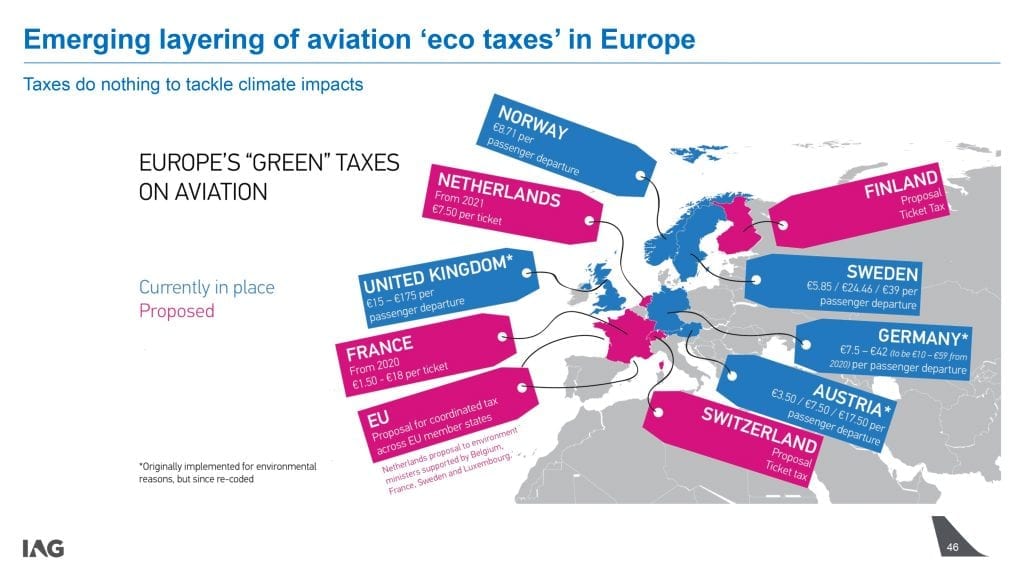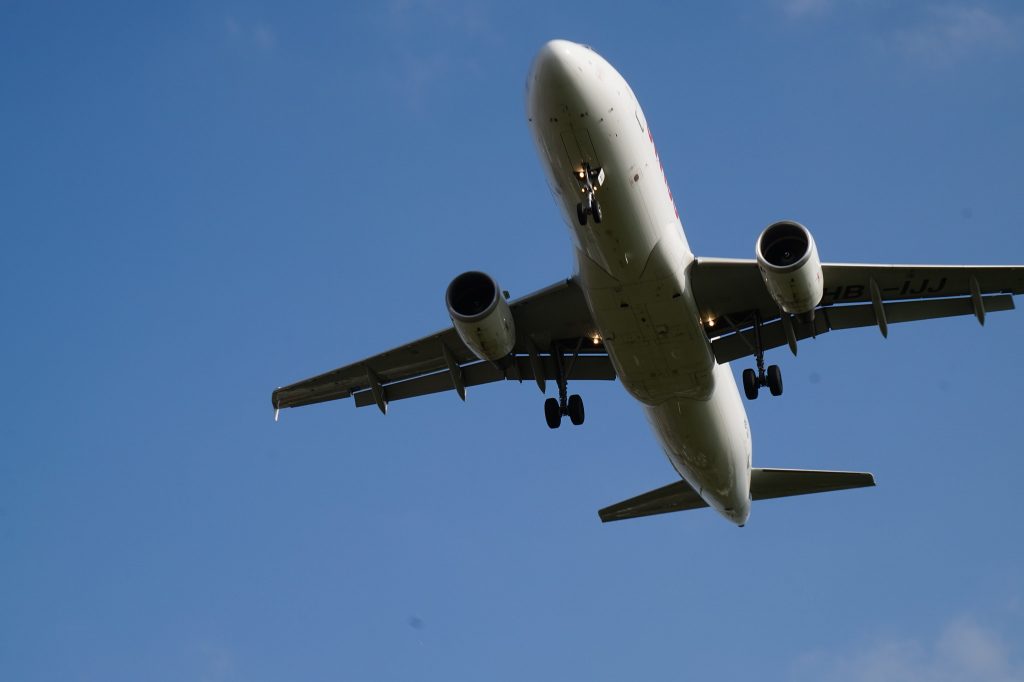Skift Take
Airlines are much more comfortable talking about mitigating climate change through incremental changes such as more efficient aircraft and carbon offsets. But these don't alter the fundamental problem. Flying is bad for the environment, and it's only going to get worse as demand keeps rising.
It used to be the case that airlines could skirt around the issue of their environmental impact. Sure, most people knew that in some way getting on a machine powered by fossil fuels was probably bad, but it wasn’t front of mind.
Today things are very different. The world is getting warmer thanks to human activity and we have a finite amount of time to change things in order to prevent a catastrophic rise in temperatures. The likes of Greta Thunberg, Extinction Rebellion, and others continue to highlight the problem, helping to keep it in the media and therefore in the mind of the traveling public.
Aviation might only contribute a small percentage to the worldwide total at the moment but — as we’ve covered extensively at Skift — that is only going to increase thanks to a rising demand and a lack of green alternatives.
Climate change is an existential threat to the airline industry and interestingly the companies themselves, rather than hiding or ignoring the subject, have been trying to control the narrative.
The issue of sustainability is now a battleground where airlines can compete for customers.
“I don’t think there is an airline better positioned for sustainability than Wizz Air,” the European carrier’s CEO József Váradi said on a recent earnings call.
Wizz Air claims to be the greenest airline in Europe and it certainly has a couple of things in its favor. It’s a point-to-point airline and its operates densely packed planes. So no business class and no connecting flights. Ryanair makes much the same point.
The whole business model of low-cost carriers makes it easier to spin the green line, but what about legacy carriers with their older, less efficient, multi-class aircraft?
While admitting that the industry clearly has a big problem, Willie Walsh, CEO of International Airlines Group, the owner of British Airways and Iberia, sees things slightly differently.
At a recent investor day, he was clear that long-haul flights were a particular problem but said that in many cases there was “no alternative.”
Walsh wants to airline group to achieve “Net Zero” by 2050. To get there IAG has four focus areas: improved fleet efficiencies, sustainable aviation fuels, carbon offsets and what it calls “disruptive innovation.”
None of these — except for arguably disruptive innovation, which is suitably vague — will put much of a dent in the carbon emissions produced.
To make the necessary difference, the aviation industry as a whole has to do one of two things. Operate planes that run on electricity — that’s not going to happen for decades — or fly less.
The Demand Problem
Global aviation body the International Air Transport Association estimate that the number of air passengers could hit 8.2 billion by 2037, double the number today. With this growing demand comes a bigger climate impact.
Although aviation accounts for only 2.4 percent of global emissions at the moment, the ICAO suggests they could rise by could increase by a further 300-700 percent by 2050. Meaning aviation could end up being responsible for 15 percent of carbon emissions.
Airlines though are still fixated on offsetting. Lufthansa Group CEO Carsten Spohr said it would allow customers “to fly as climate neutrally as technically possible”, while Air France said it will offset 100 percent of carbon emissions on domestic flights from the start of 2020.
Part of this obsession is because the United Nation’s aviation body brokered a global emissions deal centered on offsetting. The idea being that emissions growth over 2020 levels is offset elsewhere.
But as a recent BBC documentary explained the scheme (known as Corsia) is only designed to deal with growth. Plus countries like China, Russia and India haven’t signed up for the initial voluntary phase.
“Offsetting is the most flawed climate tool. We’ve had about 20 years’ experience of trying to make offsetting work. What we’ve had is wind farms that were going to be built anyway, trees that were going to be burnt down anyway,” said Andrew Murphy, aviation manager at Brussels-based NGO Transport & Environment, in the documentary.
“It’s not working as a climate tool but at the same time the aviation industry is increasingly seeing offsetting as essentially its get out of jail free card on climate policy.”
Kevin Anderson, professor of energy and climate change at the University of Manchester, was even more forthright in a recent presentation at World Travel Market London.
“Offsetting is, to be blunt, a scam. It does not work, once you emit you are changing the climate,” he said.
Airlines and their shareholders do not want to limit growth. After all this likely means less profit, they are much happier talking about mitigation, especially if this means escaping further government intervention.
In Europe, this looks like wishful thinking as the direction of travel seems to be more taxation.

Naturally, airline CEOs are against this.
“[Taxation] does nothing to improve environmental performance,” said Willie Walsh.
Ryanair, EasyJet and others have also expressed their dislike of interventionist policies, but unfortunately that’s the reality.
Consumer behavior isn’t going to change fast enough and airlines, just like other corporations, are built around making more and more money.
Governments — or perhaps even the European Union — could perhaps offer incentives to aid technological development and they may want to revisit a tax on jet fuel, which might persuade airlines to place a bigger emphasis on seeding up development on alternatives.
These initiatives could limit the damage but they won’t undo it. For that we’re going to have to think more radically. In the short space of time available flying less seems to be the only viable option.
The Daily Newsletter
Our daily coverage of the global travel industry. Written by editors and analysts from across Skift’s brands.
Have a confidential tip for Skift? Get in touch
Tags: air france, carbon emissions, carbon offsets, climate change, environment, iag, low-cost carriers, lufthansa, ryanair, wizz air
Photo credit: An aircraft lands at London Heathrow. Airlines are coming up with ways to present themselves as environmentally responsible. Matt Kieffer / Flickr
